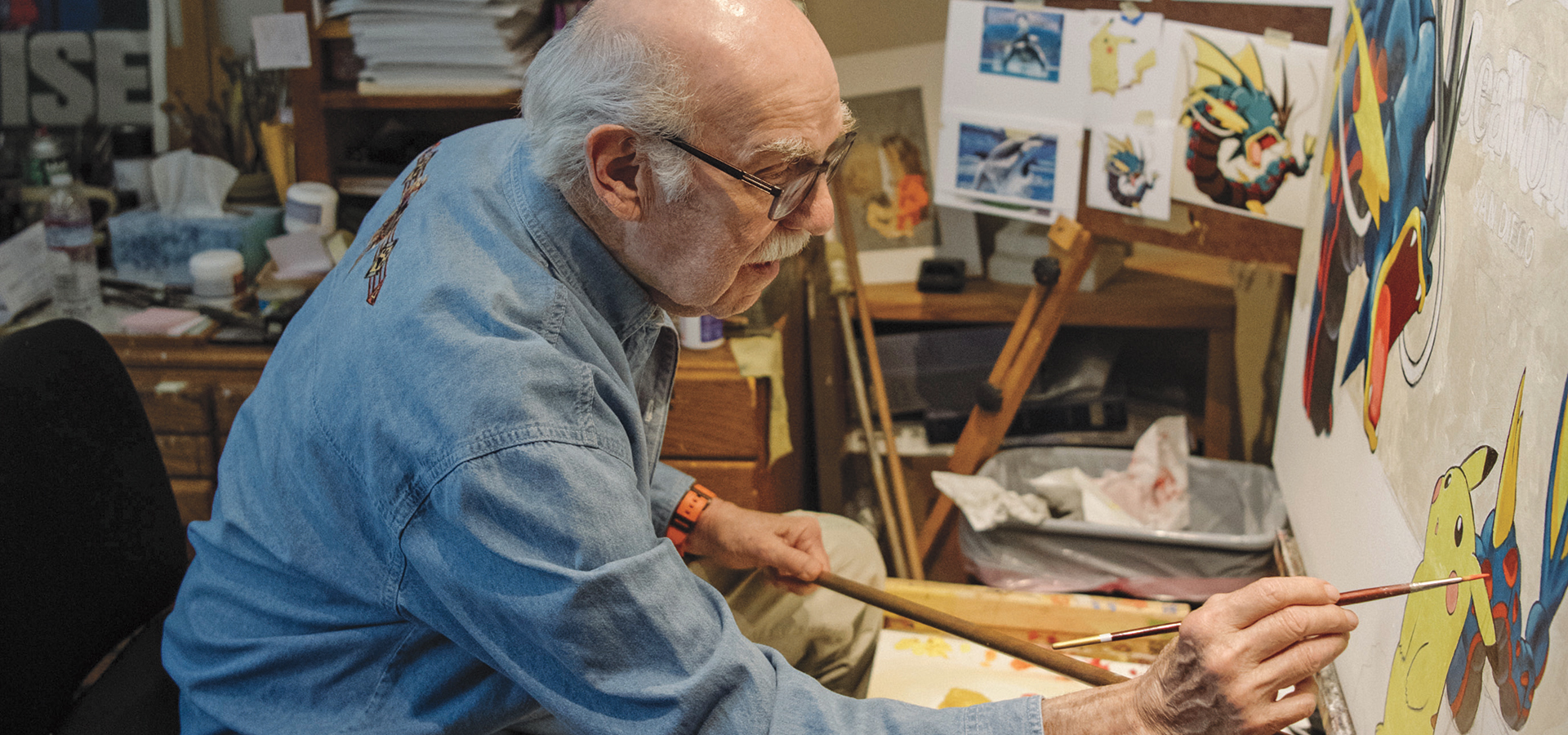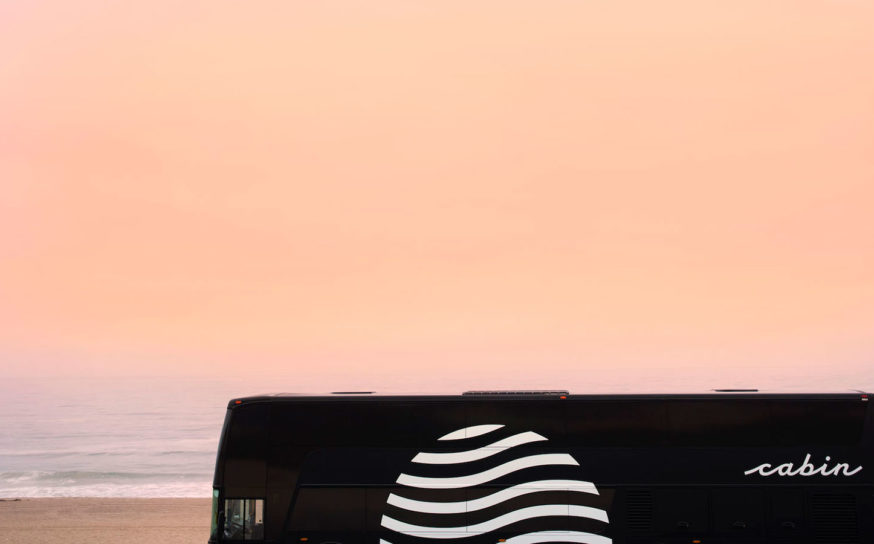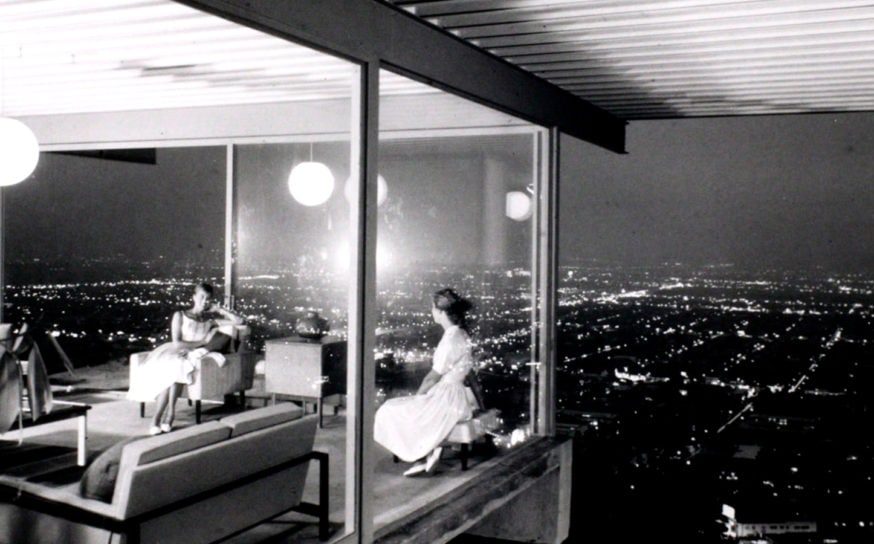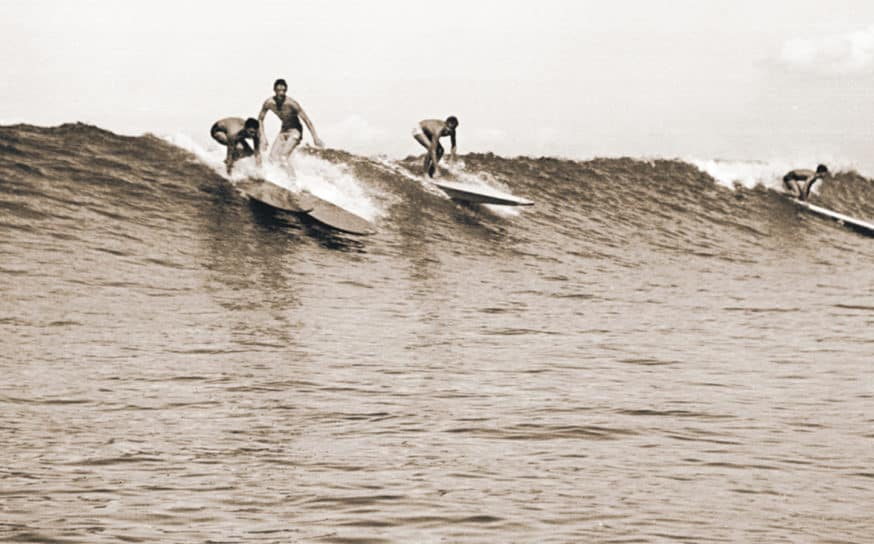Movie Poster Artist Robert Tanenbaum Has Been Drawing Fans into Theatres for Forty Years
From sleepers to blockbusters.
-
CategoryArts + Culture
-
Written byRobert Earle Howells
To visit artist Robert Tanenbaum in his Calabasas studio is to be surrounded by brilliance and whimsy in equal measure. You’ll see skeletons and skulls. Jumbo vases containing hundreds of paintbrushes beside an easel holding a giant, rather tawdry work in progress. By contrast, an affectionate portrait of his twin granddaughters, Morgan and Madison, at age 5. Lots of cowboys—mostly John Wayne—and lots of Indians. Sports stars: Dodger greats, Y.A. Tittle, Mel Blount. What appears to be a Norman Rockwell original but you know it isn’t because one of the figures looks suspiciously like Bob (as he likes to be called) himself. A tin of Contadina tomato sauce. A St. Pauli Girl in a “c’mon, big boy” pose proffering big frosty mugs of beer. And off in a corner of the cluttered room, a poster from the 1986 Paul Newman/Tom Cruise film The Color of Money.
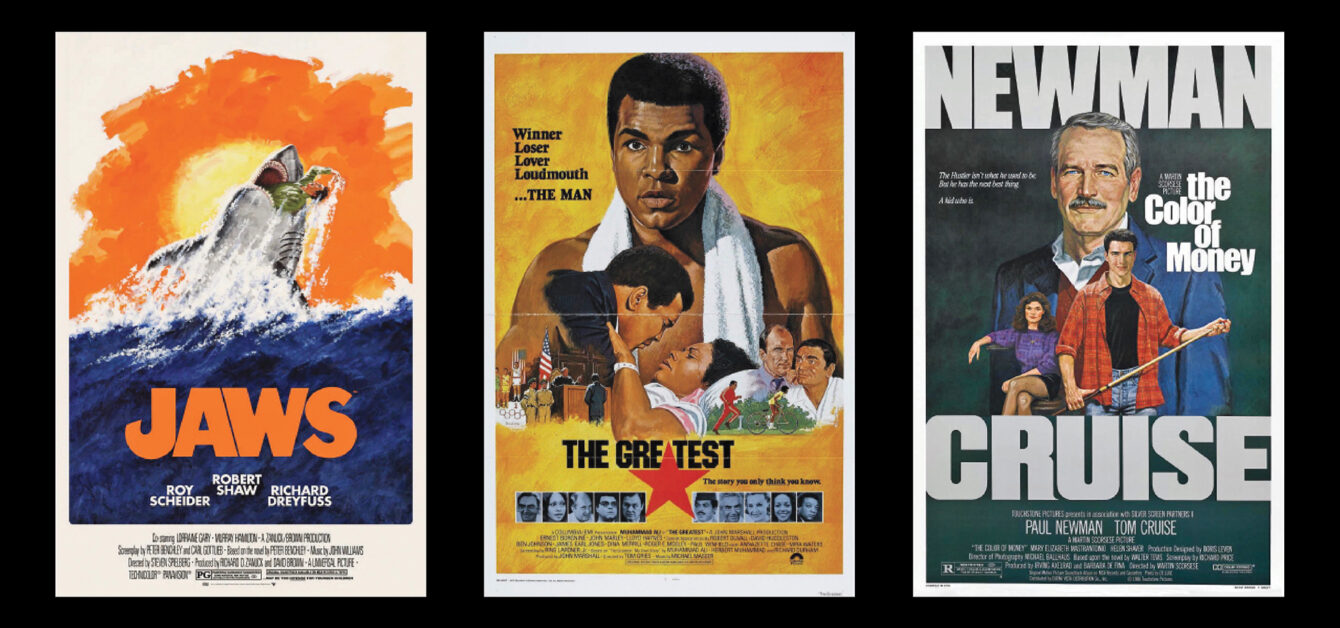
All of the art in the room represents the work of the most widely admired and covetously collected movie poster artist from the 1960s into the ’90s. Bob painted more than 200 posters for films as famous as The Greatest, Super Fly, and A Christmas Story and as forgettable as The Scum of the Earth and Silent Night Evil Night.
If each of those posters could only speak, what stories they’d tell. Happily, Bob, at 87, is around to tell those stories, which he does with a twinkle in his eye and a twitch of his bushy mustache. For instance, The Color of Money may feature Newman’s handsome mug, but the body beneath it is none other than Bob’s own. “I’ve always said that Paul Newman won the Oscar for that film because his head is painted on my shoulders,” the artist says.
A stickler for accuracy, Bob almost always used live models to pose for his movie paintings. He’d typically start with stills from the film (“I almost never saw the actual movies”), but for the poster to imbue interest and action, he needed to photograph models. “You’d never find the head on the body doing what you wanted. So I’d go through the still books and find headshots. Then I’d hire models, get them in the right clothes, and pose them. The trick was to make sure the model’s head was turned in exactly the same angle as the photo.”
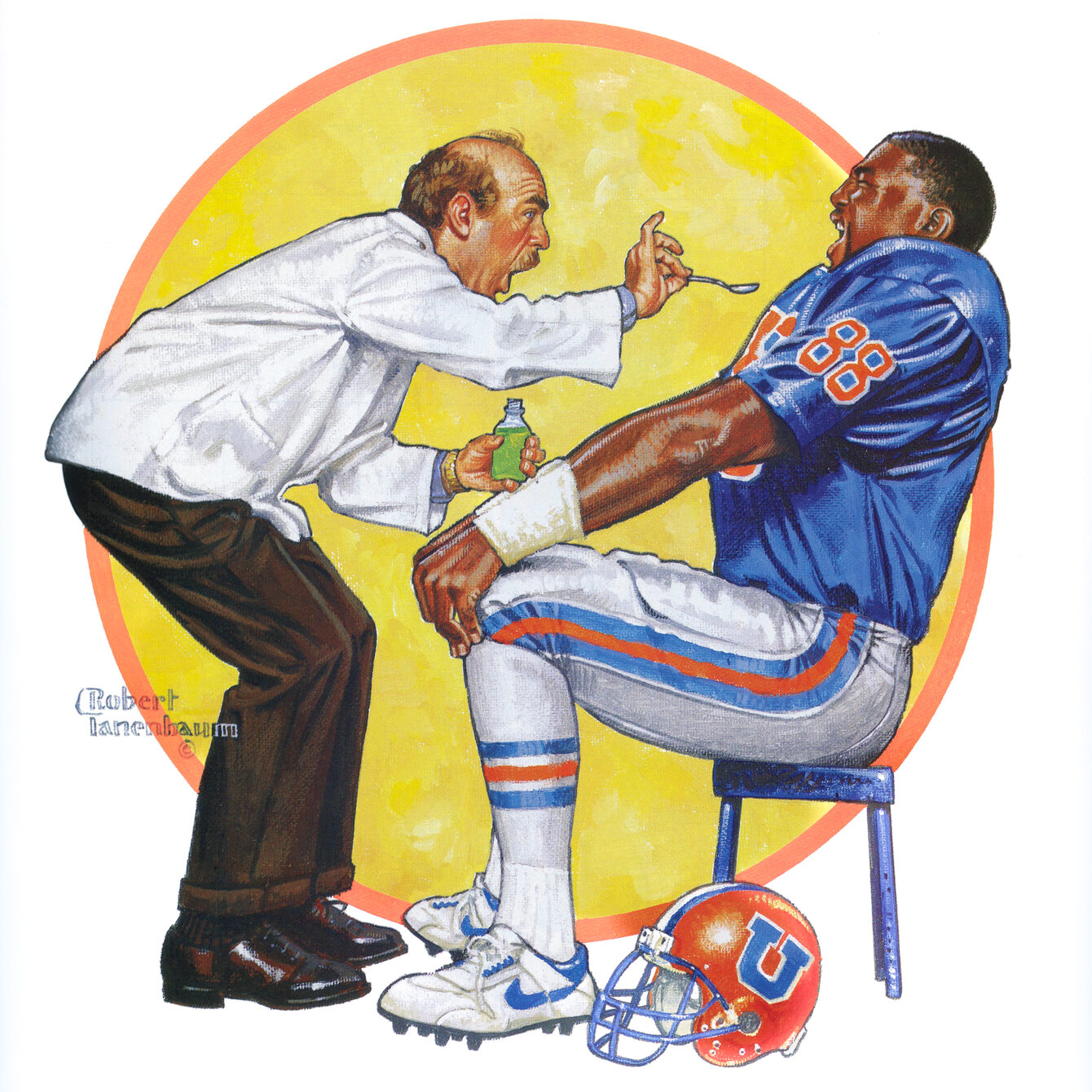
Rarely were the stars themselves available to pose, but for the film Outrageous Fortune starring Bette Midler and Shelley Long, he needed a more terrified expression of Long, hanging precipitously by her fingers from a cliff beside Midler. The studio arranged for Bob to visit the actress at her home, and to pose her appropriately. “Well, it turns out she’s one of these method actors. She sends her little daughter off into another room with a nanny, then kneels down over a hassock, puts her hands on the hassock, and starts to yell: ‘Oh f***! Oh sh**!’ The art director is going nuts, laughing, but I had to stand there with a straight face and take pictures!”
Movie posters basically had a single function—to tell a story. “People would look at the poster,” Bob says, “and if it or the movie ad excited them, they would go see the movie. Two weeks after that, it was word of mouth. But it was the posters that brought the people in. They had to make you want to know what was going to happen in the movie.”
A skilled artist like Bob could convey a story with a sly expression, with a montage of famous faces, or with action that the movie stills failed to capture. He honed his craft as an ad agency illustrator, first in his hometown of St. Louis, then in LA for an agency whose clients included Datsun and Sunkist. (He’s lived in the Valley since 1964 with his wife, Trish, and raised son David and daughter Jill here.) “I learned doing fruit art for Sunkist that there’s a certain way to paint the dimples on the skin of citrus. In five years of doing Datsuns, I learned how to read reflections, horizon lines, how the sun hits on a car.”
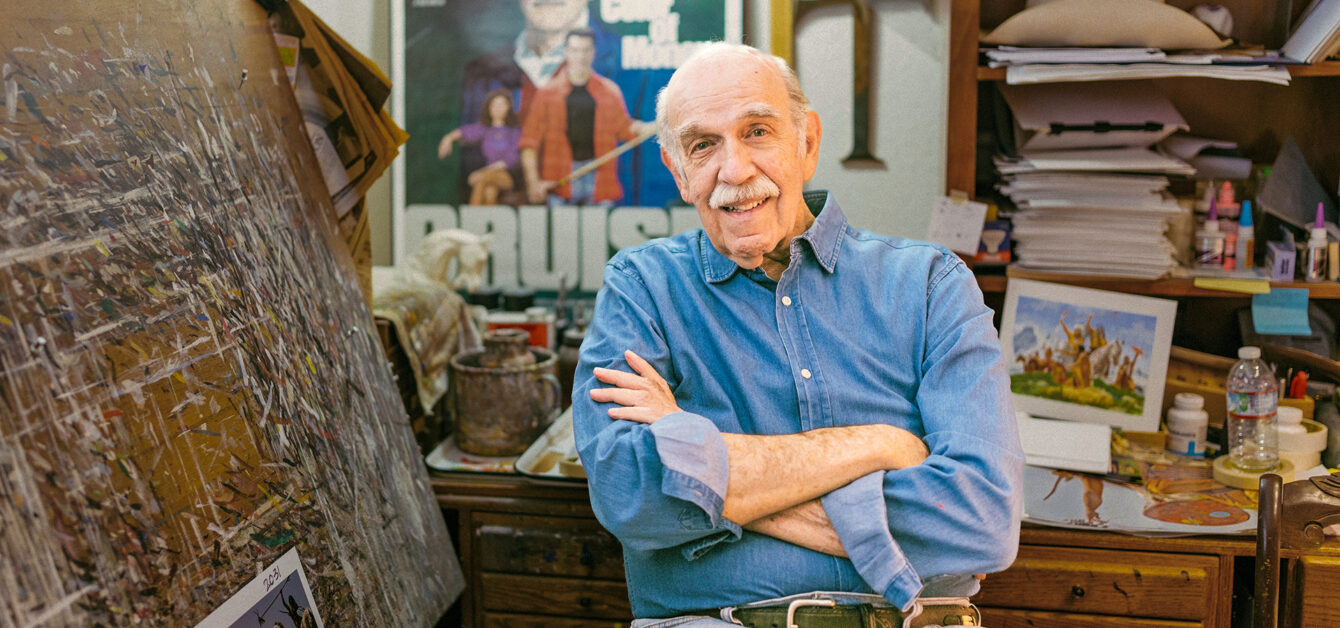
Along with his expertise in portraiture—including an amazing ability to channel Norman Rockwell—all of these skills went into his quiver to be called upon as needed for movies, for record albums (to wit, a Rockwellesque Christmas album cover for the singing duo the Carpenters), for Franklin Mint collectible portraits of John Wayne.
Still, Bob modestly asserts, “I can take absolutely no credit for being born with an ability to draw. It’s just like somebody’s being born with the ability to hit a baseball. It’s like saying I take credit for being born with blue eyes.”
The advent of Photoshop in the 1990s and a move toward heavily retouched photography sunsetted the era of movie poster art—one more example of analog yielding to digital, craft yielding to computers. But the good news is that author Dennis L. Prince has compiled hundreds of Bob’s pieces in a thing called a book. It’s filled with wonderful art and great stories. Thumbing through it is the next best thing to spending time with the brilliant, whimsical artist himself.
The Movie Poster Art of Robert Tanenbaum is available at tanenbaummovieposterbook.com.
San Francisco. Sleep. Los Angeles. Repeat
The new overnight bus from SF to LA we’ve been waiting for.
A La Jolla Exhibition Explores Rarely Seen Work From Julius Shulman
Midcentury San Diego from the lens of the famed architectural photographer.
10 Photographers Who Documented the Emergence of Surf Culture
Some California icons front the list.
Get the Latest Stories




